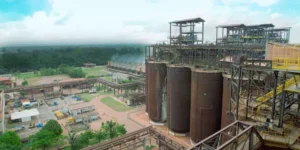The first crack in China’s ban on the entry of large iron ore transport vessels from Vale may have appeared, according to Barclays analyst Jon Windham, who told columnist Sonia Cals, from O Estado de S. Paulo. Sonia recalls that Vale “has a fleet of the largest iron ore vessels ever built, but Chinese authorities did not allow the vessels to use local ports for unloading for security reasons”.
She also reported that last week the Brazilian mining company signed a long-term agreement with the China Ocean Shipping Company (Cosco) for strategic cooperation in the maritime transport of iron ore. Companies like Cosco were the ones that most opposed Vale’s ships. For Windham, “the new agreement is the first sign that opposition to the mining company is diminishing”.
Is it? And how much longer will it take for it to disappear or at least become a minority player?
The answer is more difficult than the one indicated by the English analyst. Initially, as soon as he took over as president of the former state-owned company, where he remained for 10 years, Roger Agnelli attacked the company’s shipping arm, Docenave. He sold off the bulk carriers it had, the largest in the world, at a bargain price. Later, to compete more intensely with the Australians, the company rebuilt its fleet. It reached the maximum size of the ship, the Valemax, for 450 thousand tons, built in Korea and China. However, the Chinese vetoed it in their ports. Vale had to build an intermediate port to unload part of the cargo from the super-bulk carriers so that they could dock in China. As a result, it had to invest more than it had planned and reduced its profitability. The news of Chinese opposition is good news for the company, but the information is still too scarce to know what really happened – or is happening.








